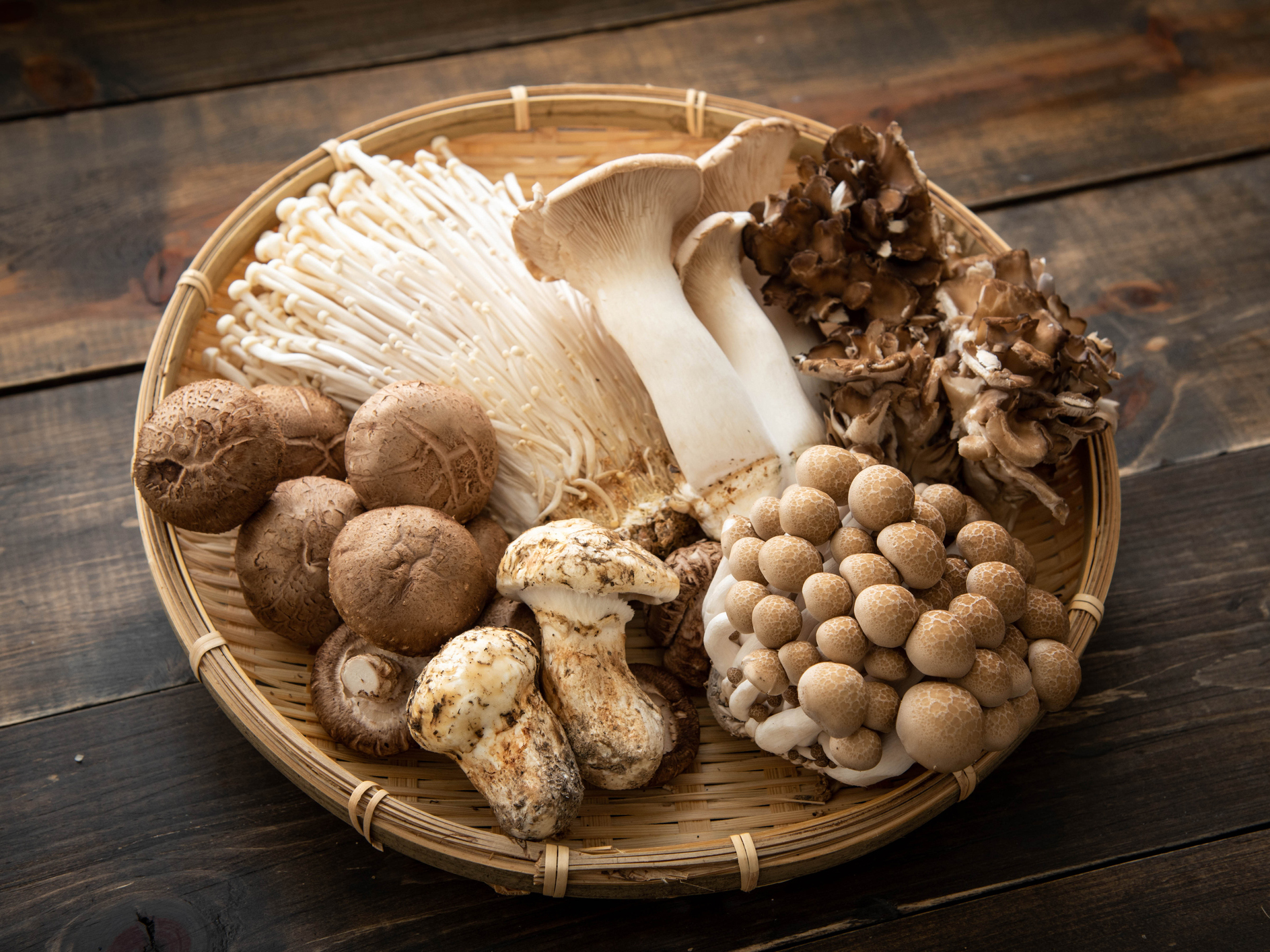Get Easy Health Digest™ in your inbox and don’t miss a thing when you subscribe today. Plus, get the free bonus report, Mother Nature’s Tips, Tricks and Remedies for Cholesterol, Blood Pressure & Blood Sugar as my way of saying welcome to the community!
Mushrooms can help you conquer cognitive decline even if you don’t like them

I recently wrote about the weird connection between type 2 diabetes and Alzheimer’s disease that’s leading some to ask if the mind-stealing disease could actually be late-stage diabetes.
I mentioned how certain diets could help control insulin resistance and support brain health, reducing your odds of ending up with either of these devastating conditions.
But today I want to talk about just one food that may offer the best brain protection you can eat…
It’s been called the modest superfood.
And the food that could save us from superbugs.
And the food with the most anti-aging potential.
In fact, this fungus comes in so many varieties, each with its own unique benefits…
Mushrooms can lower blood pressure, protect the liver, and improve digestion. Some even have anti-cancer properties.
Studies also provide strong evidence that eating a handful of mushrooms each day can help you maintain your mental faculties well into old age.
It seems that those little fungi can help prevent a condition that could be called “pre-Alzheimer’s.”
Mild cognitive impairment: the first step to Alzheimer’s?
Mild cognitive impairment (MCI) can be considered the stage right in between the cognitive slowdown of normal aging and the more serious decline that comes with dementia and Alzheimer’s.
Mild cognitive impairment is a medical diagnosis. It’s not just forgetting where you put your keys or why you came into a room.
With MCI, you’re still able to carry out the normal, day-to-day tasks of living. But you may start to forget important information, like appointments, or become less able to plan out a task.
While MCI does not always lead to Alzheimer’s, it is a definite risk factor.
That’s why we’re excited about a recent six-year study showing that mushrooms can help prevent MCI.
Mushroom-eating slashes MCI in half
From 2011 to 2017, a team from the Department of Psychological Medicine at the National University of Singapore collected data on more than 600 Chinese seniors living in Singapore.
The seniors who ate more than five ounces (about 1 ½ cups) of mushrooms each week were only half as likely to show signs of mild cognitive impairment.
Not surprising, given what we already know about mushrooms. But the researchers zeroed in on one specific compound known as ergothioneine. Like your master antioxidant, glutathione, ergothioneine fights free radical damage throughout the body.
Researchers at Penn State University believe that part of the reason that neurodegenerative diseases like Parkinson’s and Alzheimer’s are less prevalent among Europeans because of their fondness for porcini mushrooms, particularly high in ergothioneine.
So many kinds to choose from!
One great thing about mushrooms is that there are so many interesting varieties to choose from, each with its own unique flavor and benefits for the brain.
Lion’s mane mushrooms contain two compounds, hericenones and erinacines, that stimulate nerve growth factor (NGF), a protein-like molecule responsible for the development of new neurons — the cells that transform and relay messages in the brain.
Lion’s mane is also believed to have the potential to help treat diabetes, and there’s certainly a connection between that blood sugar condition and the brain.
Other mushroom varieties that were looked at in the Singapore study include white button mushrooms, oyster mushrooms, and shiitake mushrooms.
All of these have great use in a variety of culinary delights and ethnic dishes, and all are easy to find in your grocery store or local produce market.
How to get your daily brain-boosting dose of mushrooms
Believe it or not, it isn’t really that hard to eat the few handfuls of mushrooms it takes every day to keep your brain sharp.
Add some to your salad, top your pizza with them, or throw them into an omelet and you’re all set!
Now, I know there are some people who just won’t eat them. Luckily, if that sounds like you, the powerful health benefits of mushrooms are available in powdered form — like protein powder — perfect for adding to a frosty smoothie.
Mushroom powder is dried mushrooms ground to a super fine powder, which is practically tasteless.
Many of the most renowned shrooms for their health benefits, like reishi, chaga, maitake, lion’s mane, cordyceps, and shiitake can be found in powdered form online or in health food stores.
In fact, you can find super “power” blends that contain all of these and more.
So, no excuses. Feed your brain what it needs.
Editor’s note: While you’re doing all the right things to protect your brain as you age, make sure you don’t make the mistake 38 million Americans do every day — by taking a drug that robs them of an essential brain nutrient! Click here to discover the truth about the Cholesterol Super-Brain!
Sources:
- Eating mushrooms may reduce the risk of cognitive decline — National University of Singapore
- Mild Cognitive Impairment (MCI) — Alzheimer’s Association
- Neurotrophic properties of the Lion’s mane medicinal mushroom, Hericium erinaceus (Higher Basidiomycetes) from Malaysia — International Journal of Medicinal Mushrooms
- Does eating mushrooms protect brain health? — Medical News Today














